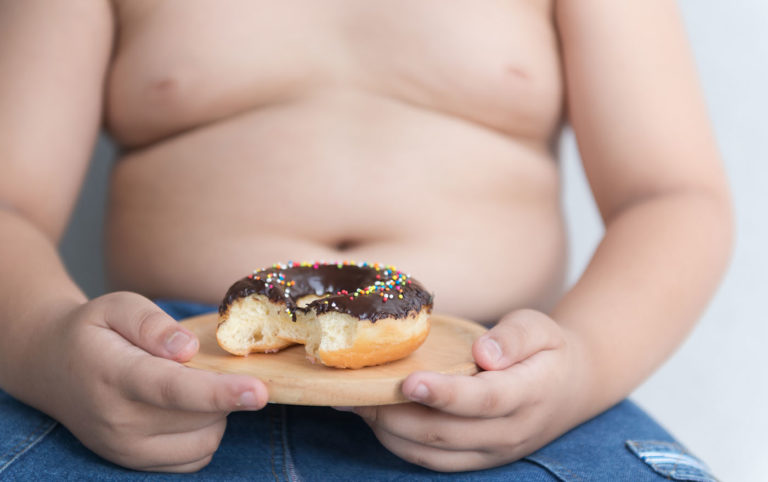
You’ve probably heard that COVID-19 is especially dangerous for overweight and obese people due to the viruses’ propensity for infecting fat cells. That should be a wakeup call for the parents of the nation’s growing population of overweight and obese children.
Consider that over the past 20 years, the diet parents and schools are serving kids has deteriorated to the point the majority of kids’ energy is coming from ultra-processed foods.
As a result, almost 14 million children – that’s roughly 25% of every American child between the ages of 2 and 17 – are considered obese. Another 8.6 million kids are eating their way into that category.
Why So Many Fat Kids?
For starters, kids are fatter because their parents are fatter (roughly 40% of adults are obese). But what’s especially dangerous for kids is that while their parents may at least have enjoyed healthier, more active childhoods, the same cannot be said for today’s children.
Kids today are more sedentary and eat worse diets than did mom and dad at the same age. With each passing year, fewer kids are engaging in athletics or any other kind of physical activity (and those that do are quitting earlier).
Equally important, their diet is horrendous.
A study of more than 30,000 kids by nutritional experts at Tufts University found that two-thirds of the typical American child’s diet comes from ultra-processed foods. That ‘ultra’ means even more of the intrinsic healthiness of the food has been removed.
Why? Because such foods are convenient for manufacturers and parents alike. They last longer and are designed to taste good.
Ultra-processed foods including sweetened breakfast cereals, pizzas, donuts, flavored potato chips, boxed mac-and-cheese, and so on.
Unprocessed foods, on the other hand (fruits, vegetables, home-cooked meals, etc.) now constitute just 23.5% of children’s total energy intake.
A Cultural Problem
Interestingly, the Tufts’ study found no discrepancy in the diets of kids hailing from educated, high-income homes – they’re eating just as poorly as everyone else. “The lack of disparities based on parental education and family income indicates that ultra-processed foods are pervasive in children’s diets,” said Fang Fang Zhang (love that name!), a nutrition epidemiologist at Tufts’ Friedman School.
There was some good news in the study: kids’ consumption of sugary soft drinks and processed fats and oils declined by nearly half.
Unfortunately, the obesity in children leads smack into a lifetime of adult obesity – along with the endless health problems that come with it: heart disease, diabetes, susceptibility to viral attacks (COVID-19 just the latest example), and so on.
Our recommendation: put as much importance on mealtime as you do other family activities. Get your kids cooking with you. Grow (or join a community) garden. Kids who grow food have a better appreciation for it and are – ta da! – more likely to eat it. And let’s not forget that the kids who regularly dine with their parents and siblings are happier and less anxious.
